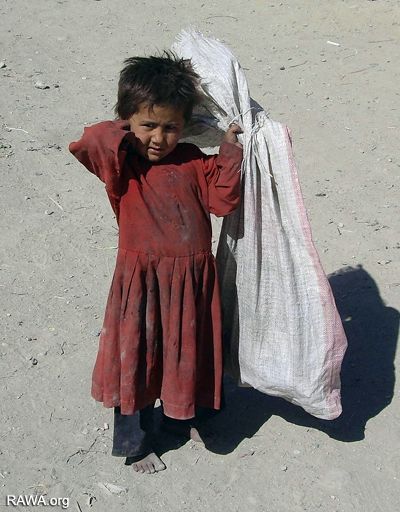By Ken Dilanian

RAWA: Billions of aid to Afghanistan in the past few years did not change he living conditions of people due to corruption.
WASHINGTON — The Obama administration's plan to boost aid to Afghanistan is shaping up as a boon to private contractors, including a company whose previous work on U.S.-funded Afghan aid programs has been criticized by auditors.
Despite Secretary of State Hillary Rodham Clinton's call to reduce the reliance on foreign aid contractors, the main U.S. aid agency is continuing to award multimillion-dollar contracts as it proposed to increase development spending in Afghanistan to $2.8 billion.
Clinton has dubbed past Afghanistan aid efforts a "heartbreaking" failure.
Last month, the U.S. Agency for International Development awarded a $150 million cooperative agreement to a partnership led by DAI, a Maryland company whose past Afghanistan contracts have been criticized by USAID's inspector general. The program is to promote alternatives to poppy crops.
An inspector general's audit released May 11 criticized DAI's performance on a $164 million contract to promote local governance. Success, the audit found, was "highly questionable" in part because DAI "had no overall strategy" for implementing local projects.
DAI was "acting to remedy what shortcoming (the audit) found," company spokesman Steven O'Connor said. DAI's poppy eradication program produced results in eastern Afghanistan, he said. A 2007 inspector general report cited achievements, but said DAI and USAID made mistakes that kept the program from working as well as it could.
USAID relies on contractors because it lacks the staff and technical expertise to implement aid programs itself. Although the administration is proposing to double the number of USAID employees over the next five years, that hiring has only just begun.
New hires will allow USAID and the State Department to reduce reliance on contractors, Jack Lew, deputy secretary of State in charge of management, told USA TODAY. At the same time, "We don't have a year to wait in Afghanistan, and frankly there are certain activities that we would never have enough government employees to do."
Lew said he and other senior officials are reviewing every contract "in a way that I don't believe has ever been done before." A "dramatic increase" in U.S. civilians on the ground in Afghanistan will enable better supervision of contracts, he said.



